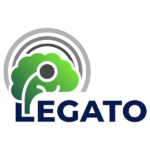The EU funded project LEGATO officially started
4 Oct 2023
The European Organisation for Research and Treatment of Cancer (EORTC) and the Syreon Research Institute are delighted to announce the official start of LEGATO, a pragmatic phase III clinical trial focusing on recurrent Glioblastoma.
LEGATO is one of three research projects coordinated by EORTC, alongside DE-ESCALATE and STREXIT- 2, which have recently received funding from the Horizon Europe Programme. The study will have a duration of five years.
About recurrent Glioblastoma
Glioblastoma is by far the most common and aggressive malignant primary brain tumour in the adult population. The average survival, following standard-of-care treatment such as surgery, radiotherapy and chemotherapy, does not exceed 15 months. Most glioblastoma patients relapse and the treatment options for recurrent Glioblastomas are limited. Currently, no standard of care exists for patients with glioblastomas at first progression. Treatment options include repeated surgery (if feasible), systemic therapy (Bevacizumab, Lomustine, Temozolomide re-challenge), reirradiation and best supportive care.
About LEGATO
LEGATO is a comparative randomised, open-label, multicentre, phase III trial (1:1) (Lomustine alone vs. Lomustine plus reirradiation) for patients with recurrent Glioblastoma. Lomustine was selected as a chemotherapeutic agent since it is, nowadays, the standard treatment for recurrent Glioblastoma.

This is the first official trial looking into the potential benefits of chemo-irradiation compared to chemotherapy alone to improve disease control and survival in patients burdened by this aggressive cancer.
The project funding started officially in June 2023 and the team is currently preparing documents for regulatory submission. Patient recruitment for LEGATO will start between the first and second quarter of 2024.
The LEGATO study aims not only to assess the efficacy of chemo-irradiation as a treatment for recurrent glioblastoma but also its cost-effectiveness through health economics analysis performed by Syreon Research Institute, which will assess the economic impact of the treatment at sites.
The LEGATO study will run in 11 countries in Europe, including Austria, the Czech Republic, Denmark, France, Germany, Italy, the Netherlands, Norway, Switzerland, Spain, and Belgium. The study aims to recruit 411 patients from 43 sites.
The LEGATO study may lead to improved patient survival and quality of life but also improve health system sustainability. The study is managed by a multidisciplinary and multistakeholder consortium involving clinical oncologists, nuclear medicine experts, statisticians, health economists and patient representatives. It may provide new insights in the treatment of this cancer and deeply change, worldwide, clinical practice for recurrent Glioblastoma.
Read more about the EORTC projects funded by the EU here and visit the official project’s website: https://legato-horizon.eu/
Related News
Meet the new EORTC Board
9 Jul 2024
We are pleased to announce the release of the EORTC 2023 Annual Report
17 Jun 2024
Dr Denis Lacombe, EORTC CEO, appointed stakeholder co-chair of ACT EU advisory group
24 May 2024
Clinical Trials Day 2024: a Q&A on pragmatic clinical trials
20 May 2024
EORTC/EMA workshop suggests an international way forward for treatment optimisation studies
8 May 2024
EORTC’s Participation at the ESTRO Congress 2024
29 Apr 2024
EORTC: Advancing research and treatment for rare cancers
29 Feb 2024
EORTC Fellowship Programme: celebrating more than 20 years of impactful collaboration
22 Feb 2024
Appointment of Malte Peters as EORTC Strategic Alliance Officer
9 Feb 2024
Unique series of workshops in partnership with the European Medicines Agency (EMA)
7 Feb 2024


